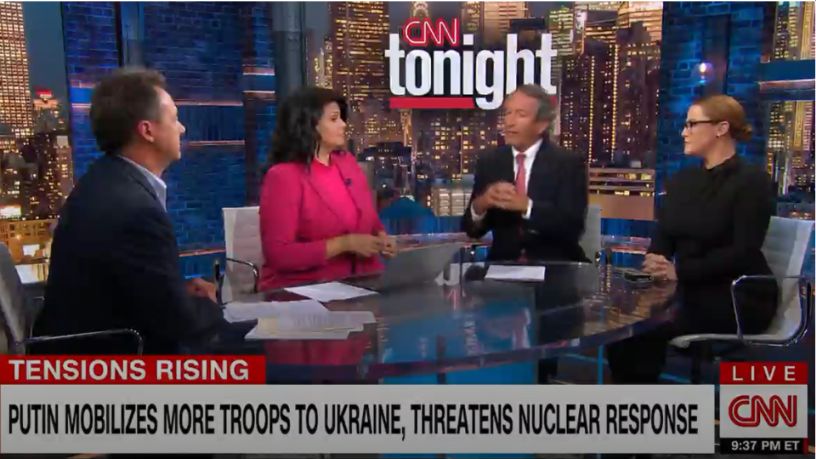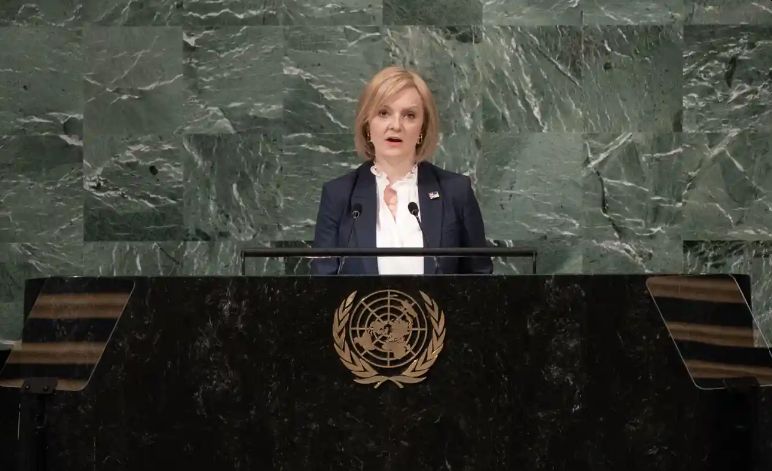By Eric Vandenbroeck and co-workers
Putin threating nuclear response
Russian President
Vladimir Putin announced a partial mobilization of Russian forces as Moscow's
army is losing ground in the seventh month of what was meant to be a three-day
war in Ukraine.
Some 300,000 Russian
reservists and men with previous military experience are expected to be called
up to the ranks under a new decree which came into force on Wednesday. Still,
it stops short of total mobilization. The announcement came after disastrous
setbacks for Russia in eastern and southern Ukraine, where it has lost huge
chunks of territory, equipment, and men. Putin finds himself caught between
increasing pressure from Russia's hawks in the security establishment, who have
called for a full-scale mobilization, and fears that doing so could risk
domestic political unrest.
Western officials
long predicted that any Kremlin effort to mobilize more troops for the war would
create a backlash in Russia, and protests broke out after Putin's announcement.
Many of the Russian forces dispatched to Ukraine thus far have been drawn from
poorer families and remote regions of the country. With high levels of draft
evasion among wealthier families, calling up those with previous military
experience enables the Kremlin to stave off mobilizing the sons of the urban
elite—those most likely to spark a backlash against a war that the Russian
public has primarily supported.
Reuters reported sellouts in selling one-way plane tickets out of
Russia amid fears that the country's border could be closed to men of fighting
age. Traffic jams clog the border with Finland. Kremlin spokesman Dmitry Peskov
could not answer when asked if a travel ban would be imposed on those eligible
for conscription. In St. Petersburg, crowds began to gather on the streets for
the first time since the early days of the war, chanting "no mobilization" while police chased away demonstrators in downtown Moscow.
The move to call up
vast numbers of troops from civilian work comes after months of Kremlin denials
about the potential of expanding the war effort. It is likely to deal a
serious—if not fatal—blow to Putin's effort to pitch the war as a "special
operation" limited to Ukraine's eastern Donbas region that has helped to
shield the Kremlin from widespread criticism. In the same speech, Putin
also announced his support for the week's referendums in four Russian-occupied
Ukraine territories: Donetsk and Luhansk in the east and Kherson and
Zaporizhzhia in the south. Voting is expected to begin Friday.
The international
community has already rejected the hastily organized referendums—the U.S.
ambassador to Ukraine decried the "sham" votes"—but Russian
analysts warned that Putin might seek to claim that any Ukrainian offensives in
the region are a direct attack on Russian territory as a pretext to
escalate.
"Foreign troops
crossing Russia's borders, even if the border has just moved, will be used by
Putin to justify renaming the 'special operation' a war, moving toward mobilization,
targeting Ukrainian sites it had previously avoided, and making its nuclear
threats less abstract," tweeted Alexander Baunov, a
senior fellow at the Carnegie Endowment for International Peace, on Tuesday.
And Putin made those
threats less abstract on Wednesday, saying, "I am not bluffing" about
using nukes if there were any threat to the "territorial integrity"
of Russia.

Western and Ukrainian
leaders quickly condemned Putin's nuclear saber-rattling and dismissed it as
posturing. "This is dangerous and reckless nuclear rhetoric. It's not new
as he has done it many times before," NATO Secretary General Jens
Stoltenberg said in a statement. "So far we have not seen any changes in
the nuclear posture or readiness, but we monitor this very closely, and we stay
vigilant."
They were equally
quick to dismiss the planned referendums. "The referendums will change
nothing. It's an act of desperation for Russia, but it's not going to help
them," Ukrainian Foreign Minister Dmytro Kuleba said, speaking to the press
in New York. U.S. National Security Advisor Jake Sullivan condemned the
"sham referenda" on Tuesday, speaking at the White House. "These
are not the actions of a confident country; these are not acts of
strength," he said.

Liz Truss has dismissed as “sabre-rattling” Vladimir Putin’s warning that Russia will use
“all the means at our disposal” to protect itself, warning in her UN speech:
“This will not work.”
The Russian
president’s threats in a televised address to the nation appeared to suggest
the conflict in Ukraine could spiral into a nuclear crisis, prompting a
furious response from world leaders, led by the US president, Joe Biden.
The new UK prime
minister, who addressed the UN in New York hours after a virtual speech by the
Ukraine president, Volodymyr Zelensky, urged world leaders not to “let up” on
dealing with Putin despite domestic concerns about soaring energy prices.
European Union
foreign ministers in an emergency
meeting agreed on Wednesday to prepare new sanctions on Russia and
increase weapons deliveries to Kyiv after President Vladimir Putin ordered the
country's first wartime mobilization since World War Two to fight in
Ukraine.
For updates click hompage here